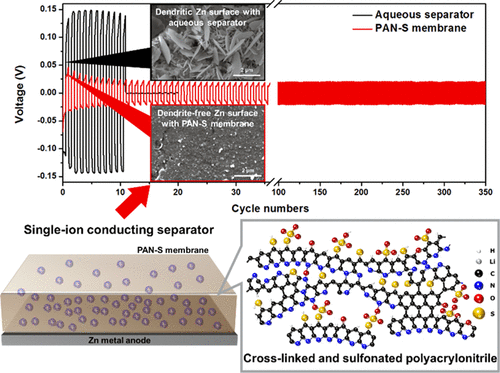
Aqueous batteries with zinc metal anodes are promising alternatives to Li-ion batteries for grid storage because of their abundance and benefits in cost, safety, and nontoxicity. However, short cyclability due to zinc dendrite growth remains a major obstacle. Here, we report a cross-linked polyacrylonitrile (PAN)-based cation exchange membrane that is low cost and mechanically robust. Li2S3 reacts with PAN, simultaneously leading to cross-linking and formation of sulfur-containing functional groups. Hydrolysis of the membrane results in the formation of a membrane that achieves preferred cation transport and homogeneous ionic flux distribution. The separator is thin (30 μm-thick), almost 9 times stronger than hydrated Nafion, and made of low-cost materials. The membrane separator enables exceptionally long cyclability (>350 cycles) of Zn/Zn symmetric cells with low polarization and effective dendrite suppression. Our work demonstrates that the design of new separators is a fruitful pathway to enhancing the cyclability of aqueous batteries.
